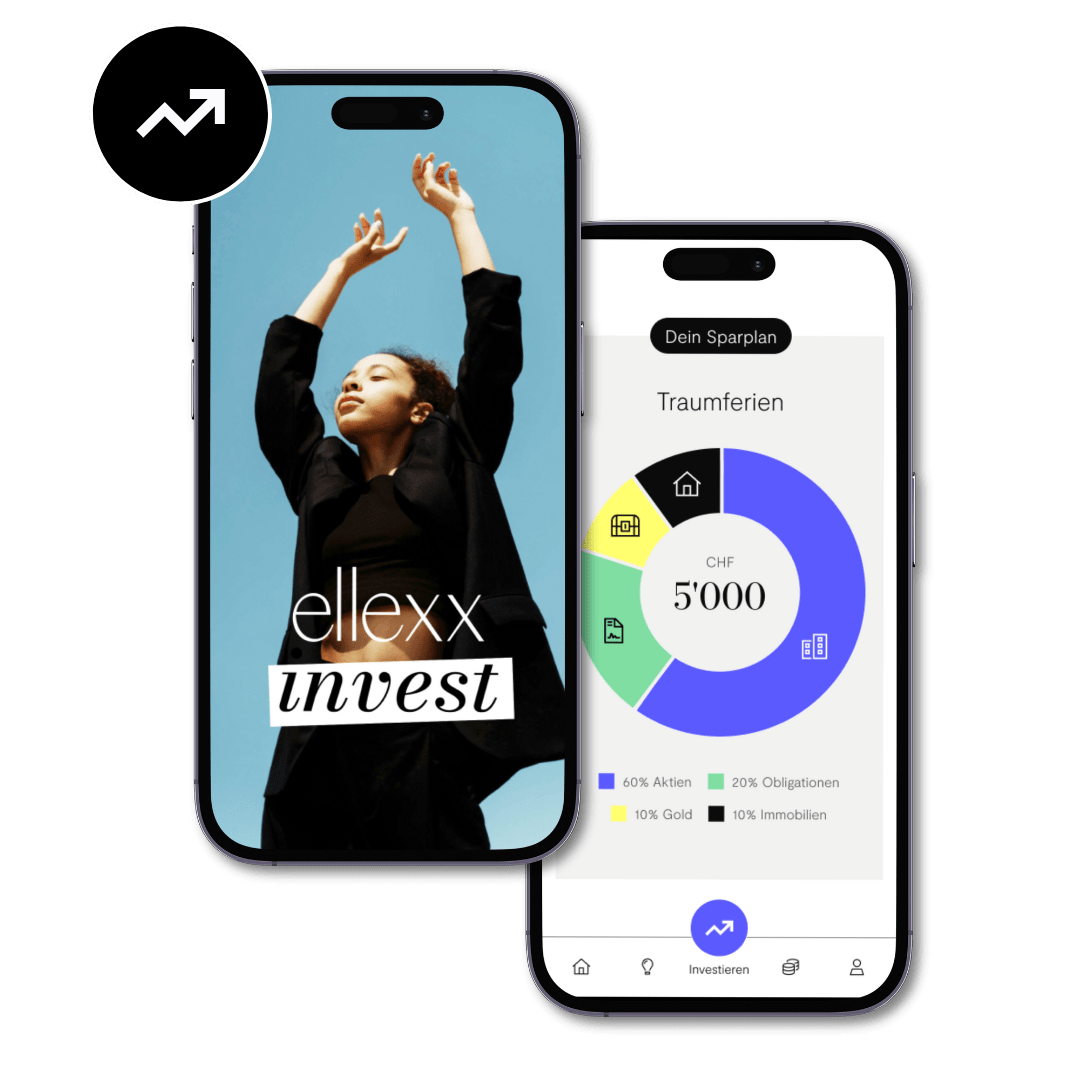Luise Ammerschuber is a keynote speaker, author, and investor. As the Director and Founder of YESS Impact, she works with entrepreneurs, corporations, NGOs, and investors worldwide to advance social impact and innovation. She is actively involved in initiatives such as «FIN Female Business Angels Switzerland», «2hearts», «Grace» and «FeMentor».
Only 20% of startups in Switzerland are lead by women (17,7% in Germany) and merely 3% of business angels are female (12,9% in Germany). A 2018 study by the Boston Consulting Group (BCG) looked at the experiences of 350 startups and found that women received much less money than men: an average of $935,000, compared to $2.12 million for all-male executive teams. However, for every dollar raised, women-run startups generated 78 cents in revenue, compared to 31 cents for men. In other words, female-owned companies delivered double the revenue and were better investment opportunities. If investors had invested in women instead, they would have helped generate an additional $85 million.
So why didn’t they?
The main reason is gender bias and clichéd skepticism about female performance. A study of the New York startup ecosystem revealed that men and women receive different types of questions and the same pitch deck gets more money if male founders are behind it.
The underrepresentation and lack of funding for women in the startup scene is not only a societal and systemic issue for gender equality. It’s also a massive missed opportunity for investors and the economy. Many female startups have sustainability and impact at their core and we need to create conditions under which these startups can flourish.
What can we do?
Two years ago, I started working with women and their communities in rural Uganda through my company YESS Impact and a local partner. In an area where unemployment and poverty are massive problems, women wanted to become entrepreneurs and provide their families with additional income. However, they struggled because they lacked access to finances to implement their ideas, had limited business and financial knowledge, and had no supportive network around them.
To get women started on their entrepreneurial journey, we began by training them in financial literacy and business creation. As a second step, women formed groups in which they met weekly to save money together and discuss their challenges. Whenever one needed funding to start her business, she could get a loan from the group fund. When advanced knowledge was needed to take them a step further, more local training was provided. Alongside the project, many other initiatives were developed which benefited their communities. We also made sure the project gained visibility by presenting it on social media and at conferences to inspire others.
There are four lessons from this experience I would like to share with you:
1. Create personal «YES Circles»
No matter if you are a female founder, investor, or other professional, if you are in Uganda or Switzerland, build a community around you that empowers you professionally and emotionally. Your Empowerment and Support Circle – or «YES Circle» as I called it in my recent TEDx talk – is composed of your friends, family, your partner, and business partners.
In my own journey as a female founder, strengthening my personal YES Circle has been crucial in advancing toward my goals. Growing up I often heard of the cliché of women being competitive with each other, but I quickly experienced the very opposite: Most women I have come across have been helpful and supportive of each other in pursuing our dreams. It has helped me to join women’s networks such as Female Founders Switzerland or the FinAcademy which came with great opportunities and have also allowed me to support fellow entrepreneurs myself.
To build your YES Circle, it is important to ask yourself which professional dreams and what kind of life you envision for yourself. Once you have established that, ask yourself: «What kind of empowerment do you need to achieve this and where can you find it?» Look around you, reach out to people, join networks and build a strong supportive community around you.
An active part of your YES circle is also to always ask yourself: «How can you support those in your community best?» Recently, I got together with some absolute go-getter ladies from tech to sustainability and venture capital on a Berlin rooftop to discuss the question «What is on your bucket list?». While each of us shared our dreams, we suddenly had a whole think tank of clever women brainstorming together for tips and connections to help each other achieve the aims. I left that rooftop with a big smile on my face and a ton of inspiration! And the good news is, you can find plenty of great female communities here in Switzerland for empowerment as well, for example:
- Female Founders: The female founder initiative aims to inspire, inform and support women to become founders and entrepreneurs by showcasing role models and providing a map of female founders in Switzerland.
- Makou: organizes fun events for female founders ranging from boat rides to oyster brunches and picnics, and also offers knowledge through workshops.
2. Develop business and financial knowledge
Similar to our female entrepreneurs in Uganda, in order to successfully run and grow a business and advance the female founders community, it is important to regularly learn new skills and bring your competencies to a new level. This includes financial skills (e.g. through ellexx), business knowledge, marketing, etc. The range of great programs available specifically for female founders is still limited, though constantly growing. Among the female programs, I recommend:
- Grace – Accelerate Female Entrepreneurship program for female founders with a very strong network of female business mentors behind it. It can give a great boost to development and offers a valuable support community.
- FeMentor is a great community for reverse mentoring, where younger female mentees are matched with advanced professionals for mutual knowledge sharing and to learn new skills.
3. Increase women's access to funding
In Switzerland, most female founders have built up their companies by bootstrapping without external funding. But in order to expand and achieve significant growth as a startup, financial capital, which can come in the form of venture capital or angel investment, is a critical resource. Currently, only a small percentage of venture capital funding and angel investments goes to women.
The number of female business angels in Switzerland is still very low compared to male angels and so is the number of funds that specifically invest in women. Fortunately, there are a few positive developments. Gender Lens Investing (GLI), which seeks to close the gender gap, is on the rise. In 2021, the Auxxo Female Catalyst Fund was launched by two of Germany’s best-known angel investors, Gesa Miczaika and Bettine Schmitz, and it invests exclusively in startups that are led by women or mixed teams. And there are strong examples of venture capital firms formed by female business angels such as Verena Pausder’s Venture Capital Firm «Pausder Ventures» and «CK Venture Capital» by sisters Conny Hörl and Katja Ruhnke in Munich.
However, many women are still unaware of what it means to be a business angel and how they could become one themselves. For example, it is possible to invest directly into some startups with as little as 5’000- 25'000 CHF. There is also the option to use crowdfunding platforms such as capacura, inventure (both start at 1000 Euro), or Gateway Ventures (starts at 10'000 Euro). As a business angel, you get to advise the startup as it grows - an aspect many women enjoy.
If you would like to learn more about becoming a business angel yourself, I highly recommend the FinAcademy where I learned more about being an angel investor, finding deals, and analyzing them. Under the wings of the Academy, we started the FIN Angel Investors Switzerland initiative to increase the number of female business angels in the country.
4. Raise entrepreneurs' awareness and visibility
Strong and visible role models can have an immense effect on encouraging more women to become founders and scale their businesses. As teenagers, the only famous women we knew and aspired to be were actors, singers, and models – far away and unattainable. Nowadays, the role models have changed and new public figures such as startup and investment influencers Lea-Sophie Cramer, Verena Pausder, and Diana von Löwen share their journeys. Today, I regularly get to meet inspiring women, from founders to passionate investors and public figures, women I wish my 12-year-old self had known already.
How can we make sure that these women and their journeys are visible?
If you are a founder, investor, or professional yourself, don't hesitate to use your platform: Speak about your topics of passion on social media, at events, or write about it – each one of us has valuable insights to share. Dare to speak about your failures as well as celebrate your successes. Look out for opportunities for your fellow women – pitch their names when you are invited for a speech, an interview, or when a contact of yours is looking for a new collaboration. Inspiring entrepreneurs can be the influencers of tomorrow, creating new role models for young girls. We can also bring awareness by introducing the topic of entrepreneurship in schools and universities and inviting successful entrepreneurs to share their journeys.
By creating a strong supportive community around us, increasing business and other skills, making investment more accessible, and female founders and investors more visible as strong role models, we can create a strong ecosystem for our founders. The stronger our network and the conditions we create for founders within it, the more we can advance with our businesses and contribute to positive changes in society. Become part of the movement and begin building your ecosystem - it will be a benefit for us all.





